It’s easy to imagine the moment our agents rescue a child from a trafficker as the story’s happy conclusion. But in reality, it’s only the beginning.
The road to recovery after enduring the horrors of human trafficking is long and difficult in the best of situations. In the worst of them, it’s only a brief reprieve before desperation drives the child back into exploitation.
We understand that rescue is more than an event: it’s a process. Destiny Rescue’s (an organisation whose work in Thailand, Cambodia and the Philippines Child Rescue helps fund) job isn’t done until they address the vulnerabilities that led to exploitation. That’s why, when survivors enrol in their programs, they develop individualised Freedom Plans™ to help them begin to heal from their trauma and stay free.
What is a Freedom Plan?
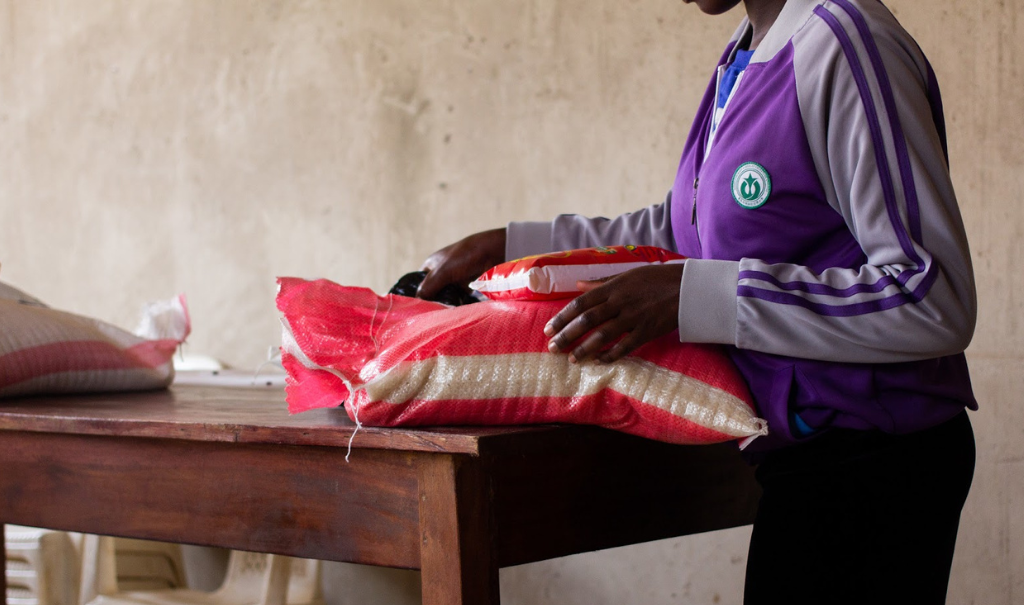
A survivor in Uganda receives a food pack as part of her Freedom Plan
In short, a Freedom Plan is Destiny Rescue’s comprehensive tool that guides and documents rescued children’s recovery and reconnection process.
While every plan is different, they generally follow three phases of care:
- Physical: The survivor’s immediate medical needs are met. This includes visits to a healthcare provider to assess her overall health and provide treatment. Many children and their families live on the brink of starvation at the time of rescue, so they provide monthly food packs as needed.
- Emotional and Spiritual: It would be difficult to overstate the unbelievable trauma many of these children endure at the hands of their abusers. Destiny Rescue begins the healing process with EMPOWER, a trauma resilience training program—a groundbreaking program that enables survivors to move forward with their lives. The EMPOWER curriculum they use also introduces the saving message of the gospel as a part of the journey to emotional well-being.
- Financial: To help ensure survivors never have to resort to exploitation to survive in the future, Destiny Rescue offers carefully tailored economic empowerment options to the child or, in the case of school-aged children, their guardians.
While a child is enrolled in a Freedom Plan, Destiny Rescue keeps careful documentation of the survivor’s progress so they can continue to tweak the program to fit her needs.
Who gets a Freedom Plan?
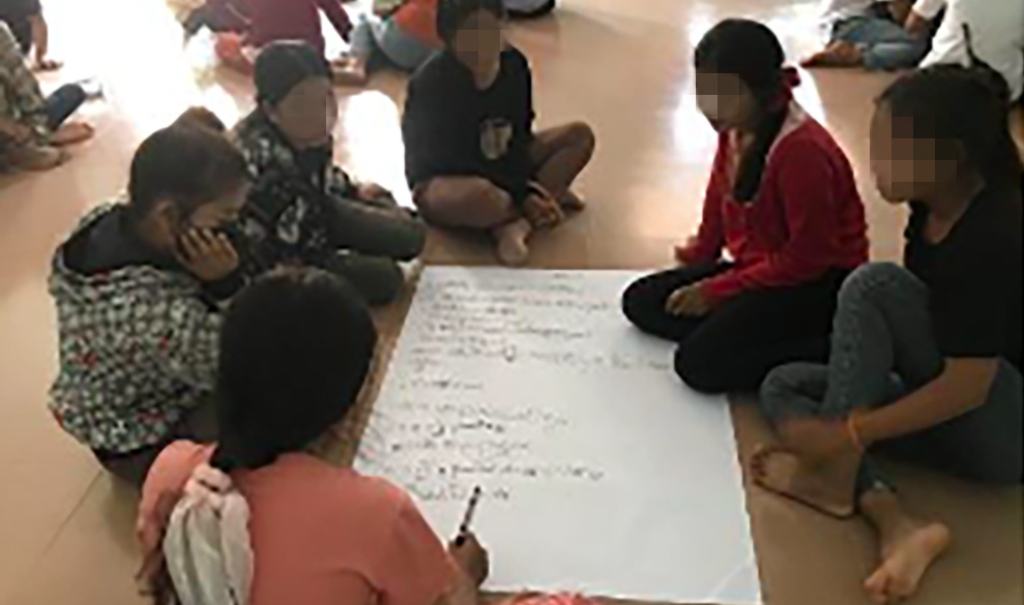
Survivors in Cambodia complete an activity during EMPOWER
Because of varying circumstances, not every child Destiny Rescue rescues remains in their care. A few examples of situations in which survivors do not receive a Freedom Plan include:
-
- Reunification: In many cases, such as border rescues in Nepal, Destiny Rescue’s primary responsibility is to facilitate the survivor’s return home to her family. In these cases, they aid in finding her family and the paperwork for cross-national travel and transportation.
- Referral: In some rescue regions, they work alongside other nonprofit organisations specialising in aftercare and recovery. In such cases, they are happy to entrust survivors into the care of these vetted professionals.
- Government Jurisdiction: In some locations, local laws require that survivors enter government-run rehabilitation facilities after rescue. After assisting local authorities with rescue, they entrust survivors to their care.
When a rescued child does enter Destiny Rescue’s care, they create and implement an individualised Freedom Plan to help them recover and stay free. In 2022, about 65% of the children they rescued (or 41% of all individuals rescued) were enrolled in a Freedom Plan.
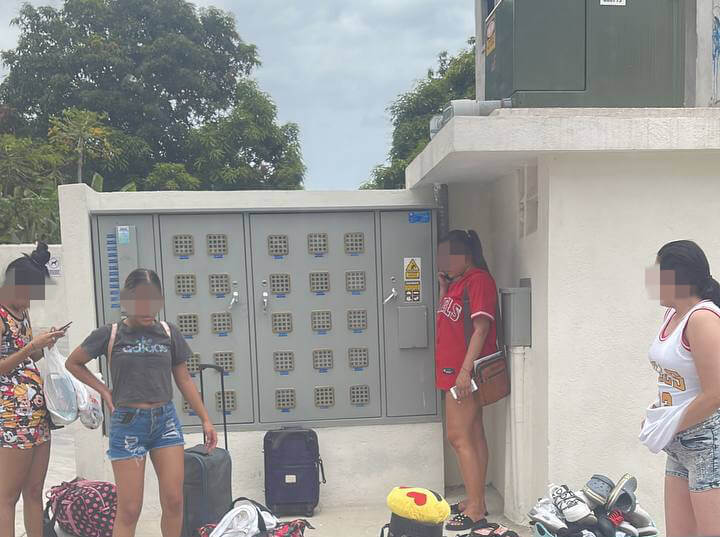
Survivors shortly after rescue during a raid in the Dominican Republic. The Dominican Republic is one nation where survivors enter government care after rescue
What services are provided to survivors?
Children receive individualised care and benefits based on their unique situations and needs while enrolled in a Freedom Plan.
Services may include:
- Crucial medical treatment
- A personal caseworker
- EMPOWER trauma resilience training program
- Monthly food packs
- Sustainable economic empowerment solutions and vocational training
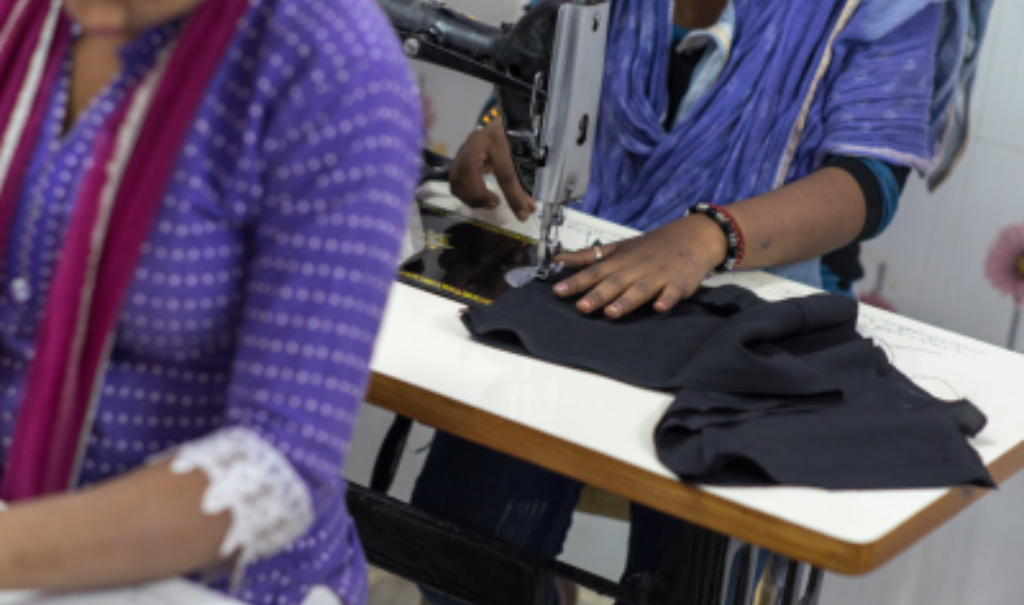
Survivors in Southeast Asia practising tailoring skills
What are economic solutions? (How can trafficking victims stay free?)
Economic solutions vary from region to region and, to some extent, from case to case.
First, caseworkers decide whether the child or a guardian should be receiving this assistance. If younger survivors need to return to school, we’ll offer economic solutions to their guardians to adequately prepare them to provide for the child.
Vocational training
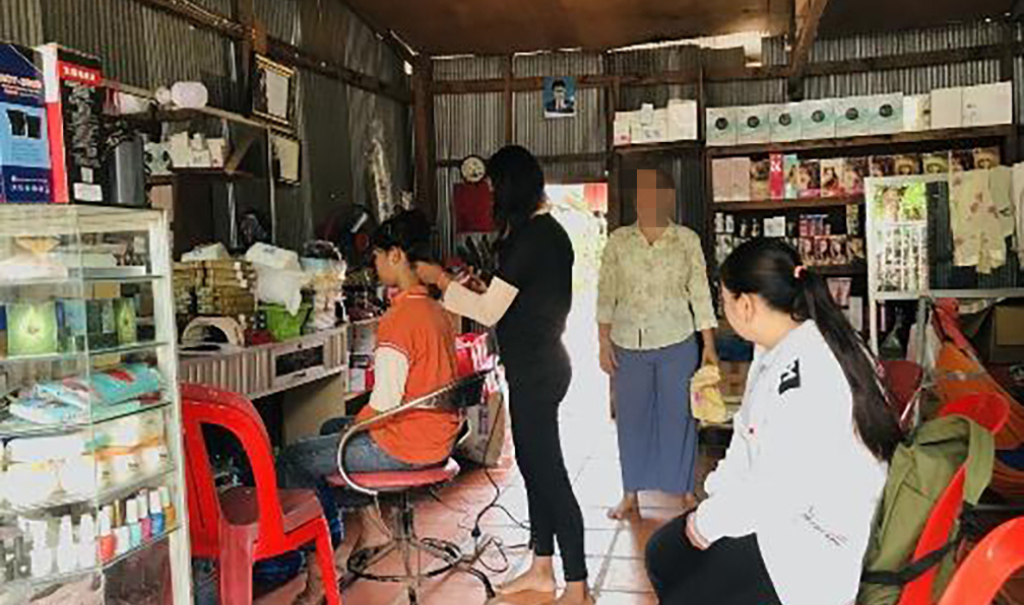
Kannareth, a caseworker in Cambodia, visits a survivor during her salon training
For many survivors, economic empowerment begins with vocational training at an official trade school, followed by assistance in finding a job in that sector. Vocations of this type can range from welding to hairdressing to making clothing.
Small businesses
Destiny Rescue often helps guardians or older survivors establish small businesses that will thrive locally, such as making soap from home or running a market stall that sells food, clothing, charcoal or other necessities. Other times, they’ll help fund an expansion for a guardian’s existing business, enabling them to better provide for the child in their care. As their businesses grow, participants not only provide for the child in their charge but also benefit their local economies.
On-the-Job Training
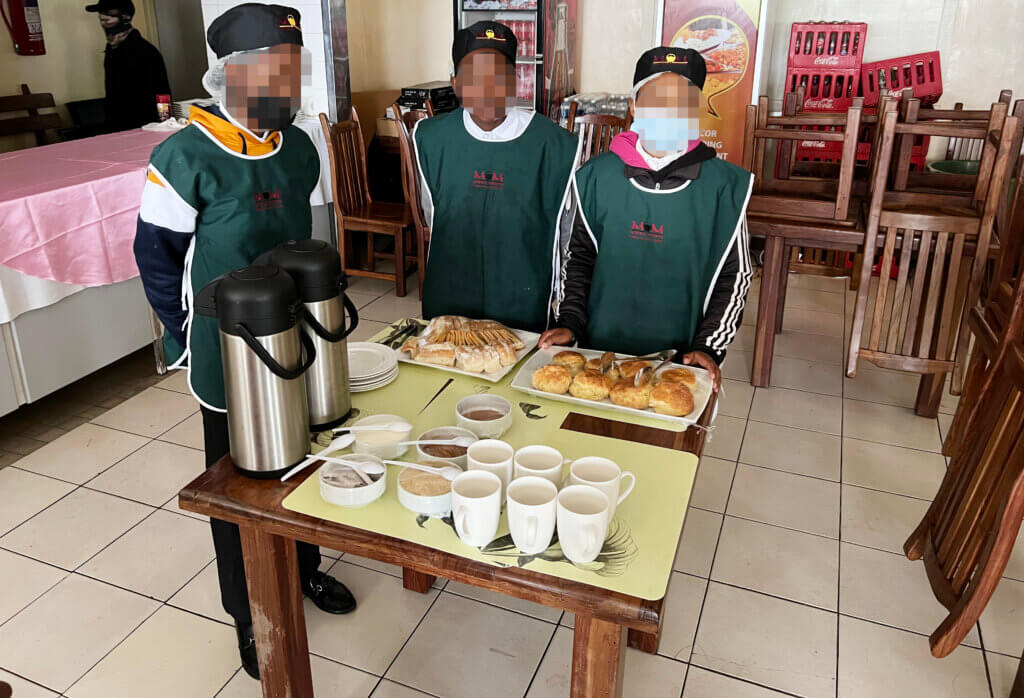
Survivors in Zimbabwe during their catering apprenticeship
This innovative solution sets survivors up with apprenticeships with local business owners. During her apprenticeship, Destiny Rescue pays a portion of her wages while she learns the ropes of her new job before the business owner takes over. These business owners act as mentors to the survivors by supplying them with paying work and teaching their apprentices soft skills, like future planning and money management.
The business owners they partner with are gentle and kind. Many are so pleased with their diligent new workers that they ask Destiny Rescue to send any more interested students their way!

Core classes during vocational training often include important skills such as computer and technology proficiency
How long do Freedom Plans last?
In general, Freedom Plans last two years. Destiny Rescue aims to ensure a survivor achieves the emotional stability and financial independence she needs to maintain a life of freedom.
After completing EMPOWER, the actual economic empowerment portion of the Freedom Plan can last anywhere from a few weeks to several months. Because their metric of success is financial stability, Destiny Rescue doesn’t put a hard and fast deadline on this “active” portion of the program. The remainder of the plan, called the “follow-up phase,” begins once a survivor has achieved economic stability and consists of regular check-ins for up to 24 months post-rescue to ensure she is financially stable and living free.
Standards
To remain enrolled, girls and boys in our programs must meet specific qualifications, such as adherence to a code of conduct, class attendance and regular check-ins. These standards ensure both accountability on their part and that Destiny Rescue’s resources are being used responsibly.
Leaving early
Some enrolled may choose to discontinue their Freedom Plans before their graduation date. The reasons for this vary. Some girls may get married, while others may move to a new area. Some of them find healing in the initial stages of the program and choose to go their own way.
Unfortunately, a small few leave and “regress” back into their life of exploitation. When a survivor chooses this path, Destiny Rescue’s caseworkers don’t give up on the child. They remain in contact and are sometimes able to rescue them again.
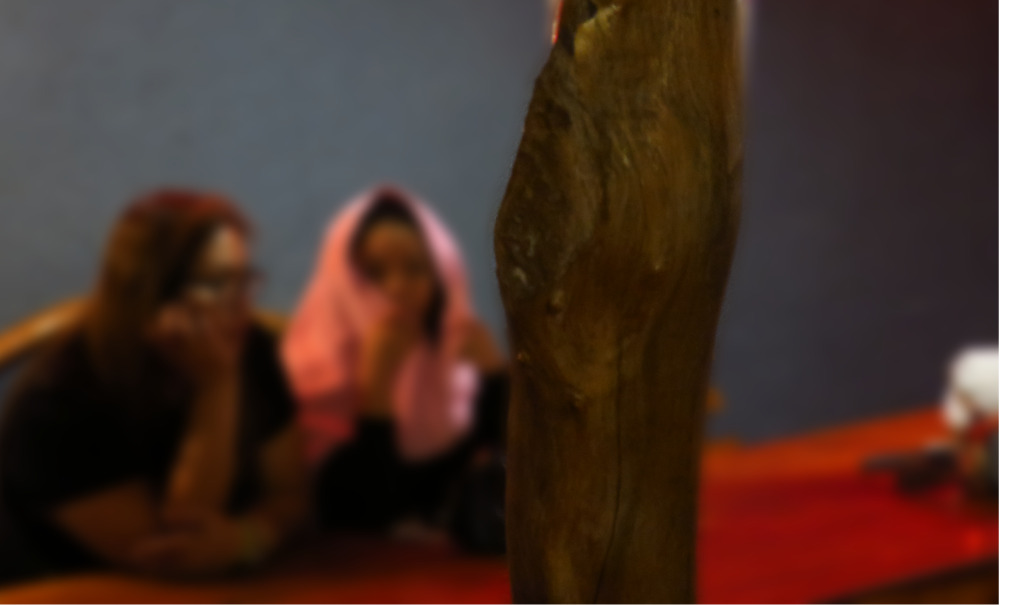
A caseworker reassures a survivor after a raid in the Philippines
Completion
Once a survivor has completed every step of her individualised Freedom Plan and is still free after 24 months, Destiny Rescue considers her fully reintegrated!
Freedom Plans are vital to providing children with the opportunities to stay free. If you’d like to be a part of a child’s rescue story, please consider giving below.
Donate with Confidence
The Child Rescue Charitable Aid Trust is a registered New Zealand charity: CC 50751. An Annual return is filed each year with Charities Services which is a NZ Government organisation under the Department of Internal Affairs. Annual reports to Charities Services can be viewed here. View our Financial Integrity webpage here.
Child Rescue is the New Zealand branch of the Destiny Rescue family, a global network of organisations. Our collective focus is to rescue children from sexual exploitation and human trafficking and support their long-term freedom.

 US & International
US & International Australia
Australia United Kingdom
United Kingdom